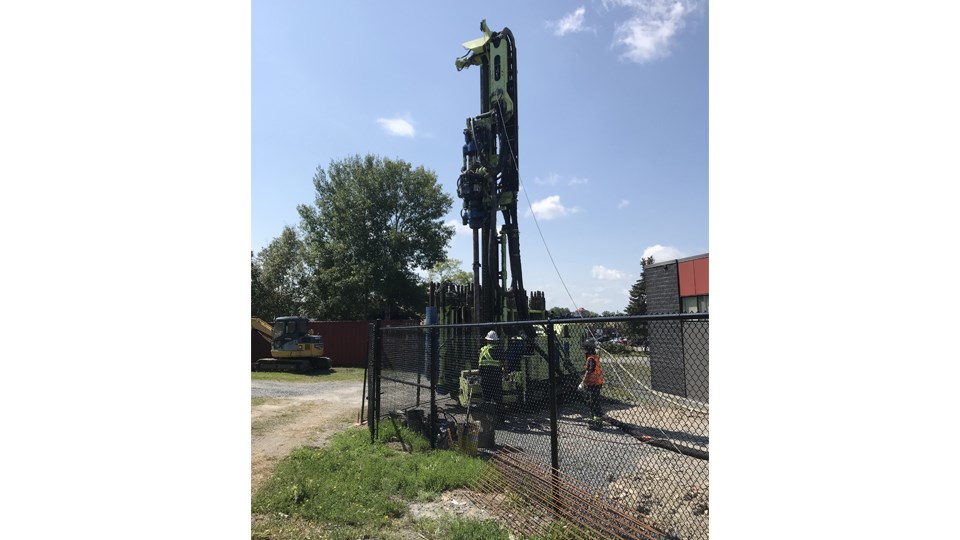Over the course of the last 10 years, Cambrian College has been consistently working on projects with Honeywell to reduce carbon emissions and utility costs.
Cambrian says its sustainability projects have been saving them hundreds of thousands of dollars ever since the conception of these plans. On Oct. 13, Honeywell announced that in their partnership with Cambrian College, they will be entering Phase 3 of sustainability efforts, which is projected to save them $4.5 million over the next 10 years.
“Cambrian College is very much supporting the net zero requirements by 2050,” Leo Vieanneau told Sudbury.com in a phone interview. Vienneau is the interim director of facilities management for Cambrian College. “And if we don’t start making improvements, and we don’t start seeing reductions, we’ll never reach those goals.”
Vienneau explained that by reducing the use of energy, they are seeing a significant decrease in utility costs. And the money saved, in turn, can go into school programs, classrooms and labs.
“We did a phase one and it was a little over $1 million — $1.2 million dollars,” Vienneau said. The money went into heating and ventilation system improvements, rooftop units with more insolation, and some lighting upgrades to name a few of the projects back then.
“What we’re seeing is an excess of $250,000 a year in savings as a result of that. When we have financed energy performance contracts, they end up paying for themselves over time,” Vienneau said.
For this year, one of the projects they will be working on is a geothermal heating solution plan. The geothermal heating project is taking place in the Glencore Centre for Innovation at Cambrian College.
“What we’ve done is, there’s heat pumps in the building and we’ve drilled nine holes — they’re six-inch diameter holes, 400 feet deep — and geothermal works on a brine that pumps down through the hole and back through the building. And you pull out heat in the winter and cooling in the summer from the ground. And that’s what geothermal does pretty basically.”
The holes in the heat pumps were only drilled a couple of weeks ago as the project is still ongoing. Vienneau told Sudbury.com that this is one of the smaller projects that will contribute to reducing greenhouse gasses in the long run. He is hoping to expand the project on a bigger scale by phase four. Geothermal systems utilize natural resources from the ground up for heating and cooling, leaving minimal environmental impact behind.
“We have also contracted a group to monitor the geothermal production to make sure we are not pulling out too much of the cold out of the ground or too much heat so we get real efficient operation. So the geothermal can operate between 80 and 90 per cent and that’s our goal,” Viennau said.
Cambrian College has been working with Honeywell since 2011 as they helped design and engineer the sustainable projects at Cambrian, such as the geothermal project. Honeywell identified the Glencore research centre as the ideal location to install a geothermal system for savings and reductions in greenhouse gas emissions.
The total amount gone into the production for phase three this year is going to cost Cambrian College about $4.5 million. The payback for the executing costs of this project will come from the savings of utility over the next ten years.
Other projects the college will be working on for phase three includes installing LED lighting which will allow savings in electrical costs. High efficiency chillers will also replace the older heating and cooling units in the college dorms. And implementing a building management system to further support energy conservation and create more comfortable learning environments.
“We take it seriously. We have goals to reduce carbon footprint and greenhouse gasses by 2030 and the next largest goal within the city of Sudbury is 2050 to be carbon neutral,” Viennu said. “And we’re in 2021 so if we don’t start moving on some of these projects, we’ll never be carbon neutral by 2050. It’s the right thing to do.”
